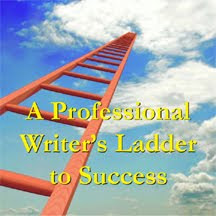I suppose it was inevitable that someone would come out with a glossary of Charlie Sheen's egotistical, outrageous quotes. So now not one, but two, major newspapers have done so. And that's not even counting the hilarious
New Yorker cartoons done on Buzzfeed. Their lists were similar, but different, so I've compiled, alphabetized, and amplified them here for you into one
Big List o' Craziness. To read the original articles, go
here and
here. To read the original quotes from the Sheenster himself, well, just read any newspaper or news website that covers Hollywood celebrities. Daily.
Hey, the crazy act has done wonders for Gary Busey's career, right? Keep the little jewels a-comin', Charlie! But it's a fine line to walk. Just be careful not to cross over into the Mel Gibson area, or risk being shunned by the media. Here, then, are the terms popularized in Sheenville over the past few weeks:
Adonis DNAnounA mysterious substance that allows one to forgo treatment by Alcoholic Anonymous: "AA was written for normal people. People that don't have
tiger blood and
Adonis DNA."
Alcoholics AnonymousnounInsidious group, also known as AA, whose influence is to be avoided at all costs by warlocks: "AA was written for normal people. People that don't have
tiger blood and
Adonis DNA."
Apocalypse Metitle1. According to the Sheenster himself, "Warlock Latin for WINNING."
2. The title of Charlie Sheen's new book, delivered to him through "vast and extensive Lunar channels."
BangexclamationA synonym for "voila": "I can say, 'Hey, kids, your dad's a rock star. Look at his experiences. Look what he survived.' Bang. There are some of your lessons."
Bi-winningadjective1. A play on the term for a mental illness meaning triumphing in two places: "I'm
bi-winning. I win here, I win there. Now what? If I'm bipolar, aren't there moments when a guy like crashes?"
2. Successfully convincing two "blonde" porn actresses to make out with each other.
BoomexclamationTerm used to punctuate the end of a gnarly, mind-blowing statement: "you have the right to kill me, but you do not have the right to judge me.
Boom." "She shows up looking the way she does...Wow! Everybody's winning.
Boom!" "White gold?
Boom!"
Buh-byeexclamationDismissive term used to denote the end of a contest, which is always signified by the victory of the warlock: [when explaining his relationship with two blondes on a morning talk show]: "That's how I roll. And if it's too gnarly for people, then
buh-bye." "Oh, wait, can't process it. Losers. Winning.
Buh-bye."
Chaim Levineproper nounDisparaging and vaguely anti-Semitic reference to Chuck Lorre, creator of
Two and a Half Men. Synonymous with
clown,
bozo,
charlatan,
stupid little man,
pussy punk, and
piece of shit.
Charlie Sheenproper noun1. Erratic and self-proclaimed superhuman star of films and the sitcom
Two and a Half Men, AKA "C. Irwin Estevez".
2. A "drug" the actor claims to use recreationally that would cause normal people's faces to melt off, their bodies to explode, and their children to weep: "I'm on a drug. It's called
Charlie Sheen. It's not available. If you try it once, you will die."
See also:
F-18,
Warlock,
WedgeCosmic fastballnounProclamations and statements of wisdom imparted by warlocks via Twitter and other media outlets: "this just in.... another
cosmic fastball from theMind of your fav Warlock;"
DyingnounA process that can be avoided through wisdom and professionalism: "Dying's for fools, dying's for amateurs."
Earn YourselfproclamationTypical "cosmic fastball" from the Sheenster, also used as a hashtag on Twitter, and manifested in other subsequent sayings: "You already own you. Now go... Earn the power. Earn the Truth. Earn the most important component in this entire dimension..."
EpicadjectiveMajor, monumental, as in the Sheenster's drug stories and other feats accomplished by warlocks, or titles bestowed by them: "she is most noble and worthy of this EPIC title."
F-18nounPowerful jet packing a punch comparable to the star of
Two and a Half Men: "Most of the time -- and this includes naps -- I'm an
F-18, bro."
Geek Squadproper nounDisparaging name for
The Big Bang Theory, created by Chuck Lorre (see Chaim Levine): "
Mike and Molly and
Geek Squad are gonna explode like they were hit by a Japanese torpedo."
Gnarles GnarlingtonnounSuper-cool one who claims to have special powers; see "Warlock". Persona of the Sheenster: "like my dear friend
Gnarls Gnarlington says, #WINNING!"
GonounThe only speed on which the Sheenster operates: "I was banging seven-gram rocks and finishing them because that's how I roll, because I have one speed, one gear: go."
Goddessnoun, often used in plural1. A woman, usually a blonde-with-dark-roots, who positions herself near a flamboyant actor for the cameras and makes herself available for sexual favors and ego boosting. In the Sheenster's case, synonymous with porn stars, former nannies/models, and wayward graphic designers: "You've read about the
goddeesses, come on. They're an international sensation."
2. The sort of woman who needs step-by-step instructions when asked to make instant coffee during an interview on TMZ Live: "It's the premade. The instant. Mix the water with the powder. Don't confuse her." (See previous note on ego boosting.)
Golden sombreronounHeadgear that must be worn by one who has been divorced four times: "I tried marriage. I'm 0 for 3 with the marriage thing. So, being a ballplayer, I believe in numbers. I'm not going 0 for 4. I'm not wearing a golden sombrero."
Lunar channelsplural nounThe means by which great information is delivered to the Sheenster, for dispensation to us mortals: "the title of my book has finally been delivered thru vast and extensive Lunar channels."
Mercury surfboardnounTriumphant vehicle for a
warlock using the media to his own advantage: "It's been a tsunami of media and I've been riding it on a
mercury surfboard."
Octagon, thenoun1. An imaginary location where a show-runner and a sitcom star can wage battle for dominance.
2. An area of unclear demarcation into which a porn star may accidentally wander into at her own peril when a sitcom star is raging over losing his wallet.
Organic union of the heartsphraseDescription of the relationship between an erratic sitcom star and two goddesses: Maybe the three of us will get married. I don't know. I'm gonna say this. It's a polygamy story. All my guy friends are gonna like throw tomatoes at me. It's like an
organic union of the hearts."
Out partyingadjectiveStar's explanation for how all his crazy escapades begin. Often results in nudity, trashing of hotel rooms, terrified escorts hiding in closets, police visits, and wacky statements to the media.
Plan betteradviceThe alternative to excuses, as explained by the Sheenster himself: "Ready for my next fastball, world? PLAN BETTER Applies to everything where an excuse now sits. Try it. U won't be wrong. Ever."
Porn familynounReplacements for one's actual family which has fled the coop, constituted of a fetish-appealing porn actress and a former-nanny-and-model graphic artist housed in an empty house in escrow located down the street from the former home of said actual family.
Radical successnounResults achieved by superhuman warlocks going through rehab at the Sober Valley Lodge: "Its primary client achieve
radical success."
Rock starnounSee
Warlock. A term often preceded by "totally bitchin'" and followed by "from Mars".
ScoreboardnounUltimate judge of who's winning, a reference to Sheen's roles in baseball movies, "where the home team's tally is always a lit-up infinity symbol, while the visitors must make do with an LED of Charlie Sheen giving the thumbs-down sign (with a smaller caption that reads, 'Sorry, bro')": "The
scoreboard doesn't lie."
Sheenverb1. To behave like Charlie Sheen; e.g., when Trey Parker and Matt Stone told David Letterman that they were "Sheening pretty hard" when they cross-dressed for the Oscars.
Sober Valley LodgenounNickname for the Sheenster's Mulholland Drive mansion, a home rehabilitation facility populated by
goddesses,
warlocks, and past visits by said warlock's children...but perhaps not so many future ones. Free from the controlling influence of Alcoholics Anonymous, its inhabitants complete their miraculous healing by proclaiming, "Cured. Winning.": "We couldn't really call it rehab because we didn't have a license to operate one, so it was a crisis management center that we labeled the
Sober Valley Lodge. Its primary client achieved
radical success."
Stoopid jew pignounTitle bestowed on the Sheenster's manager, Mark Berg, who promptly took offense at the term and resigned. As did his publicist, Dan Rosenstein.
Tiger bloodnounFluid that allows one to survive drug addiction when flowing through one's veins. Purportedly composed of human blood, prescription painkillers, copious amounts of cocaine, and male performance-enhancing drugs: "AA was written for normal people. People that don't have tiger blood and Adonis DNA." [And in response to a question about why he survived drug addiction]: "Because I'm me. I'm different. I have a different constitution, I have a different brain, I have a different heart. I got tiger blood, man."
TwitternounThe latest platform on which the Sheenster (@charliesheen) can dish out his pearls of wisdom for the masses, and on which he got over 1 million followers in his first 24 hours there. Typical tweet: "Just got invited to do the Nancy Grace show...I'd rather go on a long road trip with Chuck Lorre in a '75 Pacer...."
WarlocknounA man who holds special powers (shooting magic and poetry from the fingertips, converting tin cans into gold), endowed with three-part heart, tiger blood, and Adonis DNA. His brain "fires in a way that is -- I don't know, maybe not from this particular terrestrial realm."
WedgenounTerm for the trio of a
warlock positioned between two
godesses: "It's a
wedge. Boom. You form a
wedge to make room for the guy carrying the ball."
Winningnoun, participle1. Triumphing by getting more media coverage than studio executives, famous fathers, and show-runners who then must, "lay down with their ugly wives and their ugly children and just look at their loser lives." Often used in all-caps as a hashtag on Twitter (#WINNING).
2. Self-amplifying exclamation used to punch the end of a sentence: "Sorry, you thought you were just messing with one dude.
Winning."
Examples: "The only thing I'm addicted to right now is
winning." "Just winning every second." "
Winning, anyone?" "Duh,
winning!" "It rhymes with
winning." "Face it, folks, you just feel better when you say it. #
WINNING"
If nothing else, Charlie's at least taken our minds off the dismal U.S. debt load, the meltdown in the Middle East, and the political bickering in Washington. And you gotta love him for that.












